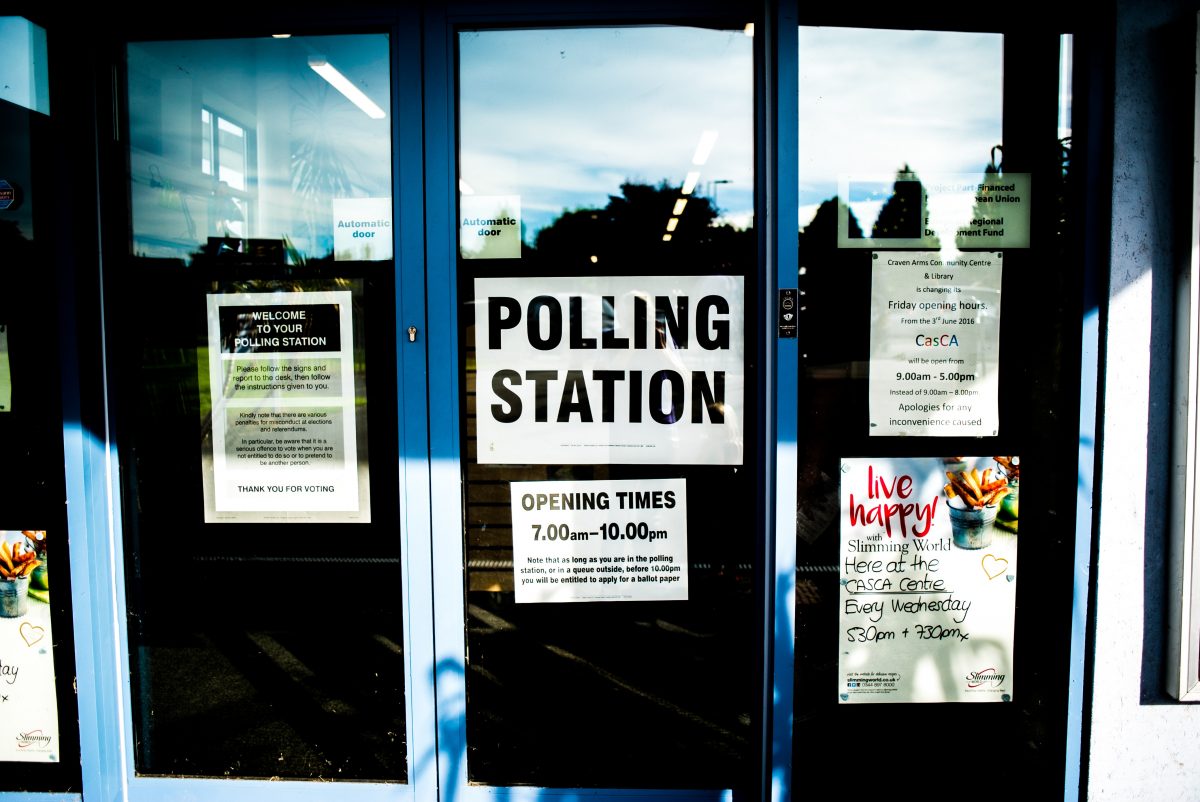Tackling Foreign Election Interference Through Self-Determination
A Response to Philipp Rothkirch
The problem of foreign election interference through cyberspace has by now received immense traction in international legal literature. Yet compared to intrusive instances such as vote count manipulations, there remains little clarity on the legality of low intensity operations like the use of disinformation tactics on social media. Previously on this blog, Philipp Rothkirch argued for the need to focus on the right to self-determination in its treaty forms. In their view, it appears easier to contend that disinformation campaigns violate this treaty right than to approach the matter on the basis of the more often discussed customary norms like the non-intervention principle (including, presumably, self-determination in its customary form). Their analysis is premised on self-determination as expressed in the International Covenant on Civil and Political Rights (“ICCPR”) and the International Covenant on Economic, Social, and Cultural Rights (“ICESCR”).
In this piece, I respond to and depart from this perspective in two regards. First, I argue that it is theoretically possible to interpret the customary counterpart of the right to self-determination using the same method as Rothkirch’s interpretation of its treaty expression. Second, I highlight the complexities of contemporary election disinformation tactics. This shows that at present, demonstrating violations of the right to self-determination will have case-specific complications. Thus, states must reach a consensus on a clear threshold for condemning disinformation operations, likely by reconceiving existing legal thresholds. Subsequently, I reflect on a broader unfortunate phenomenon evident in present international legal conversations on cyberspace: the apparent absence (or worse, exclusion) of Global South states.
Interpreting Customary Norms in Election Interference
Rothkirch’s post comprehensively covers the legal positions of states on the use of disinformation in cyberspace. This revealed the lack of consensus on when, if at all, such acts could be ‘coercive’ as required for an interference to be prohibited under the customary principle of non-intervention. While there has been some progress on that front since then (see here, para. 11), it is such lack of consensus that informs Rothkirch’s preference for ICCPR and ICESCR over any similar customary norm. Seemingly, while the inconsistency of state practice and opinio juris on this point will impede any attempts to invoke customary norms, it would not affect the right to self-determination under Article 1(1) of the twin covenants. This is because there are means of interpreting treaty law beyond only the practices of state parties, whereas for interpreting customs, state practice and opinio juris are essential.
However, this problem can be avoided if one conceives of the determination of the existence of a customary norm as a separate inquiry from its interpretation (a distinction that the International Law Commission has recently affirmed). The two elements of state practice and opinio juris are arguably necessary only to show that a customary norm, like the prohibition on interventions, has arisen. Once such a norm has been identified and formulated, its contents are particularised, and at times evolved by tribunals and states within the specific context and circumstances in which it is invoked (similar to treaty law). As highlighted by Merkouris and Mileva, the judgments of the International Court of Justice on environmental due diligence obligations illustrate this fact (for instance, in Certain Activities and Construction of a Road, para 104).
One might problematise this pattern or argue that the two-element theory should also be considered a precondition for the interpretation of customary law, and not just for their determination. However, when one’s objective is to offer a strategic legal recourse against threats like foreign election disinformation, the present reality of how judicial bodies reference customary law cannot be ignored. This means that if we accept Rothkirch’s argument that self-determination in its treaty form can be interpreted as prohibiting the disinformation threat, then such an interpretation can also hold ground for its customary form. Acknowledging this would especially help clarify the customary obligations of those states that are not parties to the twin covenants. Thus, the following section now questions whether demonstrating the violation of the right to self-determination through disinformation campaigns is indeed easy.
Defining the Threat: The Complexities of Disinformation Tactics
As highlighted by Rothkirch, the right to participate in public affairs under Article 25(1) and the right to self-determination under Article 1(1) of the ICCPR are interlinked; the former can be seen as a specific manifestation of the latter. The Human Rights Committee considers that owing to Article 25(1), voters should be “able to form opinions independently, free of…manipulative interference of any kind”. The important question then is whether foreign disinformation campaigns in elections amount to “manipulative interference” – something that Rothkirch’s post takes for granted by asserting that such activities “undermine the voter’s ability” to form opinions freely.
Presently, absent consensus from states on the inherent prohibition of disinformation tactics, I argue that whether such campaigns are “manipulative” to such an extent that they would result in a violation of these rights will have to be measured on the context of each interference. The ‘potential’ impact of an interference in the formation of voters’ opinions will thus have to be measured. To demonstrate such impact, the scale, duration, social context, and content of the disinformation would be important factors.
A complete lack of such a threshold could mean that “a mere Facebook publication with misleading statement(s)” by a foreign representative could violate the right to self-determination, even without arguable likelihood of affecting opinions’ formation. The absence of a threshold could also risk needlessly limiting regular assertions of foreign policy interests by states with reference to elections in other states. Such an outcome should be avoided given the growing recognition of the distinction between influential or persuasive operations as against manipulative tactics.
However, that is not what the heart of the disinformation discourse touches upon, reaffirming the importance of defining the problem one seeks to regulate. The issue of concern seems to be interference like Russia’s in the 2016 United States elections. These involve systematic and coordinated foreign campaigns, especially when using sophisticated technology to feign domestic origin of the disinformation in order to influence or confuse election discourse, the targeting of existing social tensions in the society of focus, and the conduct of such campaigns before key political events. Even more distressing is the usage of complex malware like Botnets in amplifying the disinformation, or the use of advanced techniques like ‘microtargeting’ for uniquely engineering the social media feeds of different voters (see Committee of Ministers Declaration, para. 6 and Special Rapporteur David Kaye, paras 17-18). At present, it seems strategic to explicitly focus regulatory attempts on such thorough orchestration of disinformation by foreign states. Such intensive campaigns certainly appear manipulative rather than merely persuasive.
The Hurdle Posed by ICCPR Article 19(1)
The analysis can, however, become even more complicated if one considers further empirical factors like the reach of social media in influencing particular constituencies. For example, some states have much greater cybersecurity and counter-factual capacities for addressing threats like disinformation than others. Should this also be factored in assessing whether a voter’s ability to form opinions freely is affected? Moreover, scientific studies on even the 2016 United States elections show contrasting expert opinions on whether and to what extent different demographics could have been affected by Russia’s disinformation (here, here, and here).
Lawyers seeking to defend disinformation could argue that such circumstantial complexities form essential inquiries by referring to Article 19(1) of the ICCPR as providing context to Article 25(1). This is because Article 19(1) offers the guarantee of the freedom to “hold” or freely form an opinion as an absolute right since it was imagined as a “purely private matter” (Nowak, p. 441). As a right that cannot be restricted, its violations occur in appalling cases when states practise “indoctrination, brainwashing, influencing the…mind with psychoactive drugs or other means of manipulation” (Nowak, p. 442). Presumably, “other means” should be of similar degree to the foregoing instances, and whether disinformation tactics cross that degree would presently be a case-specific question.
Given such practical difficulties, as Jones argues, there is a need to reimagine customary norms and international human rights law norms particularly, and to secure state consensus on a “threshold for condemning…interference as wrong rather than requiring assessment of its impact on individuals’ rights…”. In other words, the threshold would regard certain forms of interference as wrongful for their presupposed potential impact in all cases. The need for such a threshold becomes acute given the diverging scientific conclusions on the actual impact of Russian interference on individuals. Sophisticated, coordinated, and large-scale operations like Russia’s ought to be captured by this threshold.
Where is the Global South?
Since clarifying the legality of foreign interference necessitates dialogue between states on cyberspace both on customary and treaty norms, the importance of the future inclusion of the Global South in this dialogue needs to be emphasised. Post-colonial states were the voices that historically championed norms like non-intervention and self-determination. It is interesting to revert back from today’s debates on cyberspace to the advent of direct broadcasting satellites amidst the Cold War. Adeno Addis highlighted how states from the Global South were mindful and vocal of the dangers posed by this new technology in potentially strengthening the intrusive propaganda of the then “two superpowers”. After all, the Global South was no stranger to overt or covert foreign attempts for regime change. As such, albeit with opposition from powerful states from the West, the General Assembly adopted certain resolutions clearly linking non-intervention and self-determination to foreign election disinformation (for instance, resolutions 36/103 and 37/92).
It should not be surprising that even though mainstream literature on the topic centres around threats from Russia first and China second, many states from the West like the United States and France also engage in election interference through cyberspace – including by the use of disinformation (in continuation of their previous practice). Even if one examines the activities of Russia, recent studies on its disinformation operations spotlight interference in almost two dozen African countries. Yet despite their historical importance to this issue, these events or any statements made by Global South states are rarely, if ever, referenced in mainstream legal and scientific literature. This continues the broader democratic deficit resulting from the oft absence of records of Global South practices in discussions concerning customs. As has been argued elsewhere, there has consequently emerged a worrying tendency of scholars exaggerating the weight of existing practices from states like the United States, often misquoting concepts like the ‘specially affected states’ doctrine to justify that stance. Thus, a conscious attempt to counter this trend is crucial.
Conclusion
The foregoing sections of this post have shown the challenges inherent in arguments that invoke existing treaty or customary norms in regulating cyber disinformation campaigns, which relate to the unprecedented technical complexities of the problem at hand. Since there is then an urgency to reimagine the thresholds of these norms, or to conceive of new apparatuses for tackling the issue, it is vital to encourage the participation of Global South states and actors in this conversation. Without inclusivity, the evolution of cyberspace regulations could become demonstrably blemished by critiques akin to the development of outer space law: being a guise for concretising the self-interests of the Global North.
Acknowledgements: The author is thankful to his co-panellists, and Dr Gbenga Oduntan in particular, for their inputs on this piece during the 2023 Kent Graduate Conference. Thanks are also owed to Rudraksh Lakra for comments on a previous draft.

Abhijeet Shrivastava is a B.A., LL.B. (Hons.) graduate from Jindal Global Law School.

Thank you for your insightful thoughts on my post and on the issue of foreign election interference!